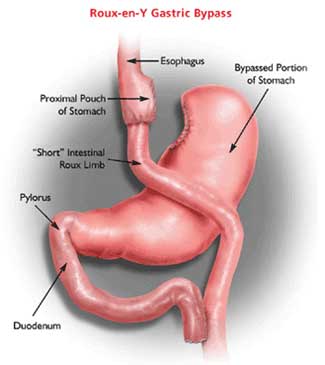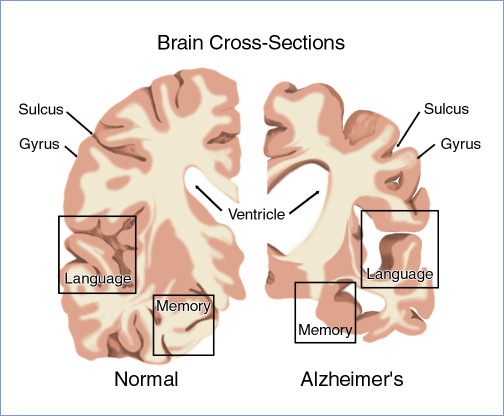Vitamin B12 (Cobalamin) is the largest B vitamin, it is a red crystalline substance, necessary in reconstruction of DNA, and maintenance of healthy red blood and neural cells. Just as mercury may cause B12 deficiency in the nervous system, so alcohol can cause deficiency in the tissues of the liver and the intestine. Unlike social drinking which often results in a spike of appetite, habitual alcohol consumption heavily and repetitively depresses the system, causing a general lack of hunger and increased nausea. Often in this diet alcohol replaces food, resulting in numerous deficiencies caused by the lack of an adequate intake of nutrients. Nutritional deficiencies are common among alcoholics, but they can also be found in people who just consume alcohol on a regular basis.
Excessive alcohol consumption may damage the GI tract absorption in such a manner that the body is effectively experiencing starvation from the lack of nutrient assimilation into the system. It heavily impairs the body’s ability to break down and absorb the vitamin compounds in the stomach and intestinal lining. Alcohol also seems to raise serum levels of vitamin B12, so that the deficiency is masked and the subject may look like they have higher than normal B12 levels. In case of severe damage of the GI linings and impaired B12 metabolism supplementation of the vitamin will have to begin, and oral administration is not an option in this case.
Alcohol’s effects of the stomach
Even moderate drinking can still cause changes in gastric acid secretion, cause acute gastric mucosal injury, and also interfere with gastric and intestinal motility.
Pernicious anemia, the autoimmune disease in which the body’s own white blood cells are directed against the intrinsic factor or the mucous stomach cells can be caused by an excessive alcohol consumption. It can also be aggravated by moderate to low alcohol consumption. Pernicious anemia causes a severe B12 deficiency, as the intrinsic factor is necessary for the absorption of the vitamin compound into the system.
Alcohol’s effect on Gastric Acid Secretion?
Alcohol consumption affects gastric acid secretion. In low to moderate doses it stimulates gastric acid secretion—in higher doses it causes inhibition.
Chronic alcohol consumption causes shrinkage of gastric mucosa and decreased gastric secretory capacity. This means the stomach is less able to kill bacteria that enter the body, which may lead to the colonization of the upper small intestine with potentially harmful organisms. These bacteria begin to devour all available nutrients which enter the body, often causing severe malabsorption of a number of vitamin and mineral substances
Even a single episode of heavy drinking can induce mucosal inflammation and hemorrhagic lesions. An inflamed GI lining is heavily impaired in terms of absorption capacity which may lead to severe vitamin and mineral deficiencies.
Alcohol causes damage to the muscle layers of the stomach wall and decreased GI smooth muscle contraction which mix incoming food with gastric fluids.
After chronic use of alcohol an increase in propulsive contractions occurs. These contractions cause diarrhea. The nutrients from the food ingested are not properly absorbed, and over a period of time this acts effectively as starvation, draining the body of all necessary nutrients and minerals. Increased hydration during periods of gastric distress further dilute and flush the vitamin and mineral reserves in the system.
Alcohol’s effect on the small intestine
The small intestine is the area where most nutrients are absorbed. Alcohol causes interference with absorption of nutrients and can cause interference with the enzymes needed for digestion, the transportation of nutrients to the bloodstream and the effectiveness of enzymatic metabolism.
Alcohol can cause mucosal damage even in healthy people during a single drinking episode which can lead to erosion and bleeding. Alcohol also causes an increase in intestinal permeability which lets large molecules that normally would not be able to cross the intestinal wall to get through. .
Diseases of the oral cavity and esophagus related to high alcohol consumption
Barrett’s esophagus: The lining of esophagus is replaced by abnormal cells which leads to abnormal acid production.
Gastroesophageal reflux disease (GERD): The sphincter weakens or relaxes, and the contents of the stomach splash back up into the esophagus.
Esophageal stricture: Cells lining the esophagus are damaged and cause narrowing of the opening. A person with this condition will have trouble swallowing foods.
Gastritis: The inflammation of the lining of the stomach.
Studies have shown that both moderate and heavy alcohol consumption will affect vitamin B12 levels. One study showed a 5% decrease in mean serum vitamin B12 concentrations when consumption of alcohol increased from 0 to 30 grams of alcohol/day.
Researchers investigated the effects of moderate consumption of alcohol (1 or 2 drinks each day) in 53 postmenopausal, healthy, well-nourished women. There was a 5% decrease in the amount of serum vitamin B12 concentrations from 0 to 1 drink/d treatment. Alcohol intake had no significant effects on serum folate concentration. Among healthy, well-nourished, postmenopausal women, moderate alcohol intake may diminish vitamin B12 status.
Source: Laufer EM, HartmanTJ, Baer DJ, Gunter EW, Dorgan JF, Campbell WS, Clevidence BA, Brown ED, Albanes D, Judd JT, 2004. The Effects Of Moderate Alcohol Consumption Of Folate And Vitamin B12 Status In Postmenopausal Women. European Journal Of Clinical Nutrition.

 Firstly it seemed that the more time the individual devoted to their cognitive health throughout their lifetime, the more likely were they to avoid developing the dementia or suffering from more advanced forms of Alzheimer’s. Consuming a Mediterranean diet and having a semi-active lifestyle also seems to act as a preventative measure. Very importantly some studies uncovered that vitamin and mineral deficiencies may be at fault for the developing and progression of the cognitive disorder.
Firstly it seemed that the more time the individual devoted to their cognitive health throughout their lifetime, the more likely were they to avoid developing the dementia or suffering from more advanced forms of Alzheimer’s. Consuming a Mediterranean diet and having a semi-active lifestyle also seems to act as a preventative measure. Very importantly some studies uncovered that vitamin and mineral deficiencies may be at fault for the developing and progression of the cognitive disorder.